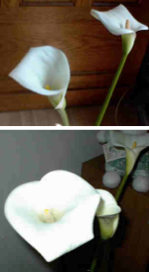Summer Festivals - 端午節

Instead of Summer Solstice, summer begins on or about May 5th for the farmers following the traditional Chinese calendar. And summer ends on calendar on Aug 7th, though the summer heat may last well into September. The designation of seasons in a Chinese calendar reflects more on the agricultural activities than on the actual climates of the seasons. Spring begins early than the actual prevalence of sprouting throughout nature to accommodate the preparation of the ground for spring planting. Summer ends early to give way to the need to start harvest. In the summer season there are two major festivals, the Dragon Boat Festival and the Festival of the Dead. The Dragon boat festival falls on the fifth day of the fifth month in the traditional Chinese calendar, which falls in May or June in the Gregorian calendar. The three things that are often associated with the festival are the dragon boat race, cooking sticky rice wrapped in bamboo leaves and ridding the poisonous elements. The Dragon boat race is said to have originated from the boat search of a patriotic poet Chu Yuen who hurled himself into a river to proclaim his loyalty to his lord in the Warlord period preceding the Chin Dynasty. To divert the fish and the shrimps in the river where Chu Yuen committed suicide, people threw rice wrapped in bamboo leaves into the river to feed the fish and shrimps and keep them from feasting off his body. Summer time is prime for extreme heat and draught, poisonous insect on the prowl, poisonous snakes out of their caves and nasty contagious diseases on the rise. To help ease these threats of summer, people hang insect repelling herbs over entryways, wear scented bags, bath with water that has antiseptic herbs soaked in it and drink liquors spiced with herbal medicine.
The entire seventh month in the Chinese calendar is dedicated to the dead. It is said that the underworld opens its gate on the first day of that month and closes on the last day of that month. It is believed that the dead are free to roam our world in this month. On the fifteenth day, the day of the full moon, the Festival of the Dead is held. Every household prepares a feast and offers it to the dead. Many people also believe that in this month, catastrophical accidents are more likely to happen and go to the extreme to avoid traveling by plane or even by train. Out of respect for the dead and fear of the unknown, each region and trade celebrates this festival a little different from another but all with elaborated and colorful details. Fishermen are know to put lantern boats on water to make peace with those that died at sea or in rivers. Temples often take on the responsibility to pray for those who died without proper burial rituals. Alongside the dangerous roadways, travelers burn paper moneys as peace offerings to those died in traffic accidents.
The Japanese have the Obon Festival, also a festival for the dead, in the July and August time frame. During the festival, bonfires are set outside of homes and lanterns hung everywhere during nighttime to guild spirits back from yonder. Also meals are set out in shrines to feed the visiting spirits. On the last day of the festival, paper boats are set on fire on bodies of water, along the coast, on rivers, to carry and guild the visiting spirits back to their yonder world dwellings.
It is interesting that in the heat of summer when the vitality of life is at its strongest would there be festivals for the dead. The underworld and the dead have extreme element of Yin while the element of Yang, represented by the Sun, the heat and the growth, all can be associated with summer. Perhaps it is exactly because of the opposite in Yin and Yang elements that the summer season is the proper time for the dead to visit us as Nature provides the strongest counterbalance for the potential harm the extreme Yen could bring.